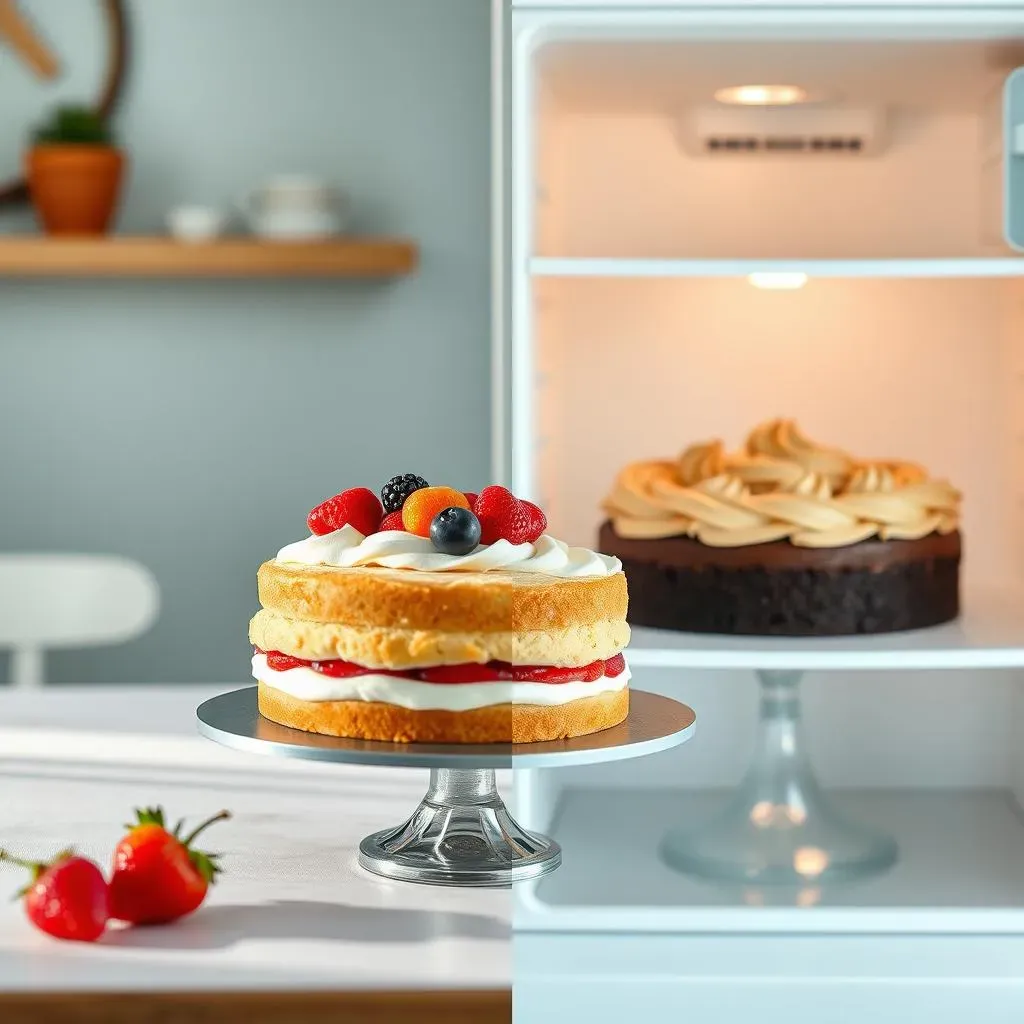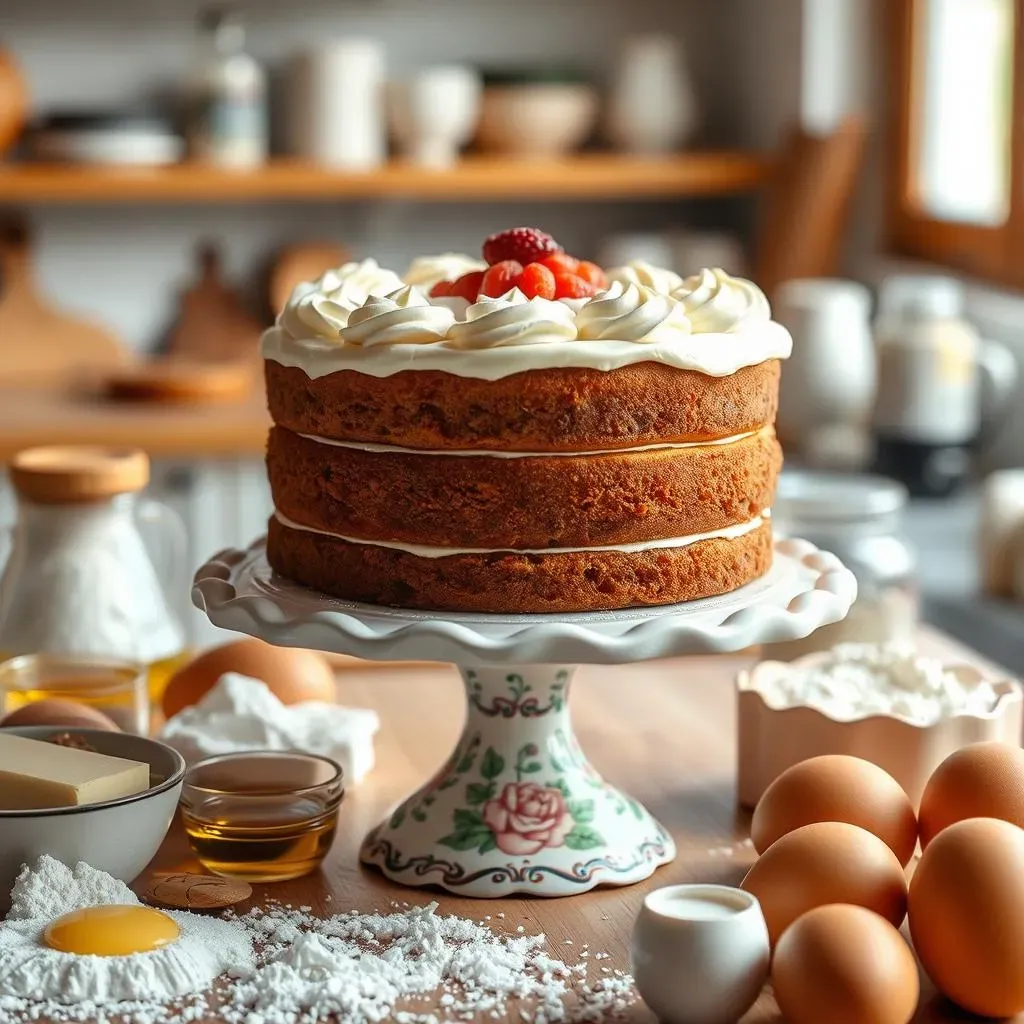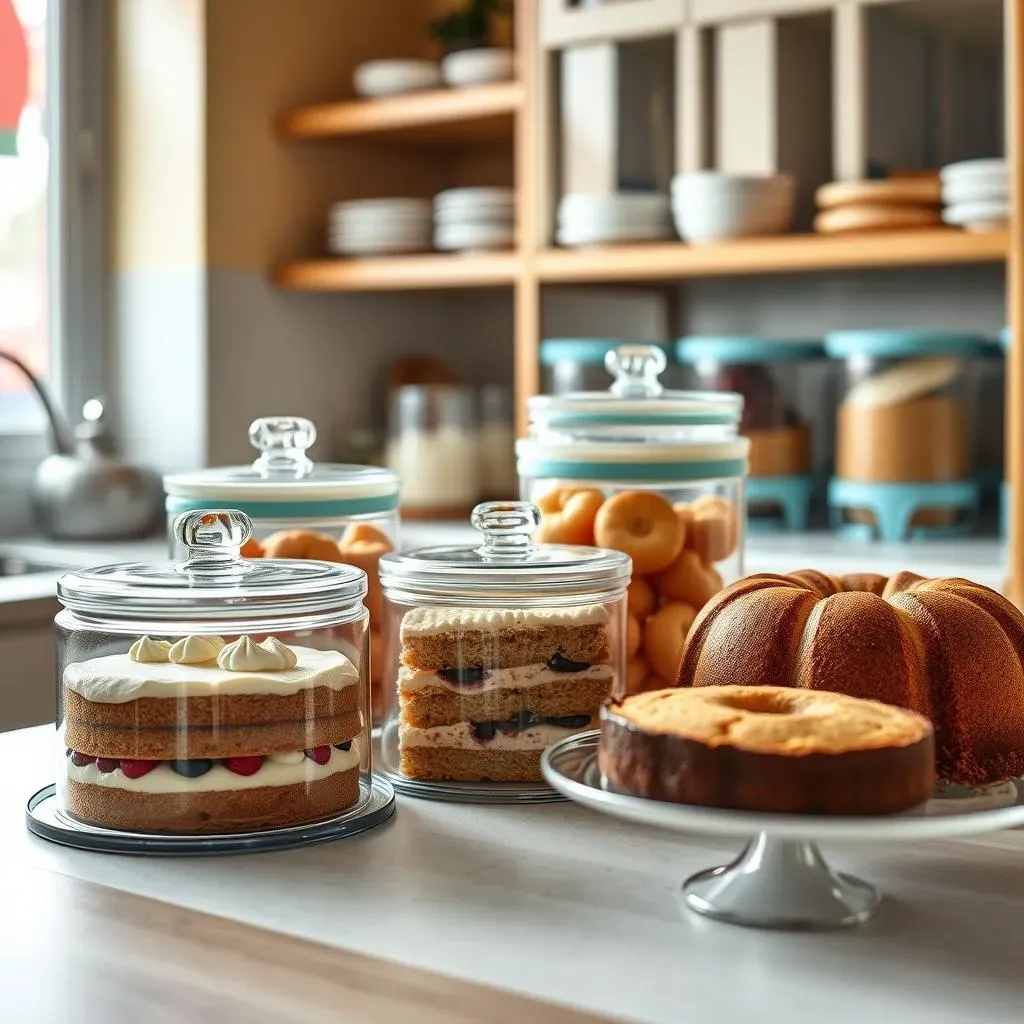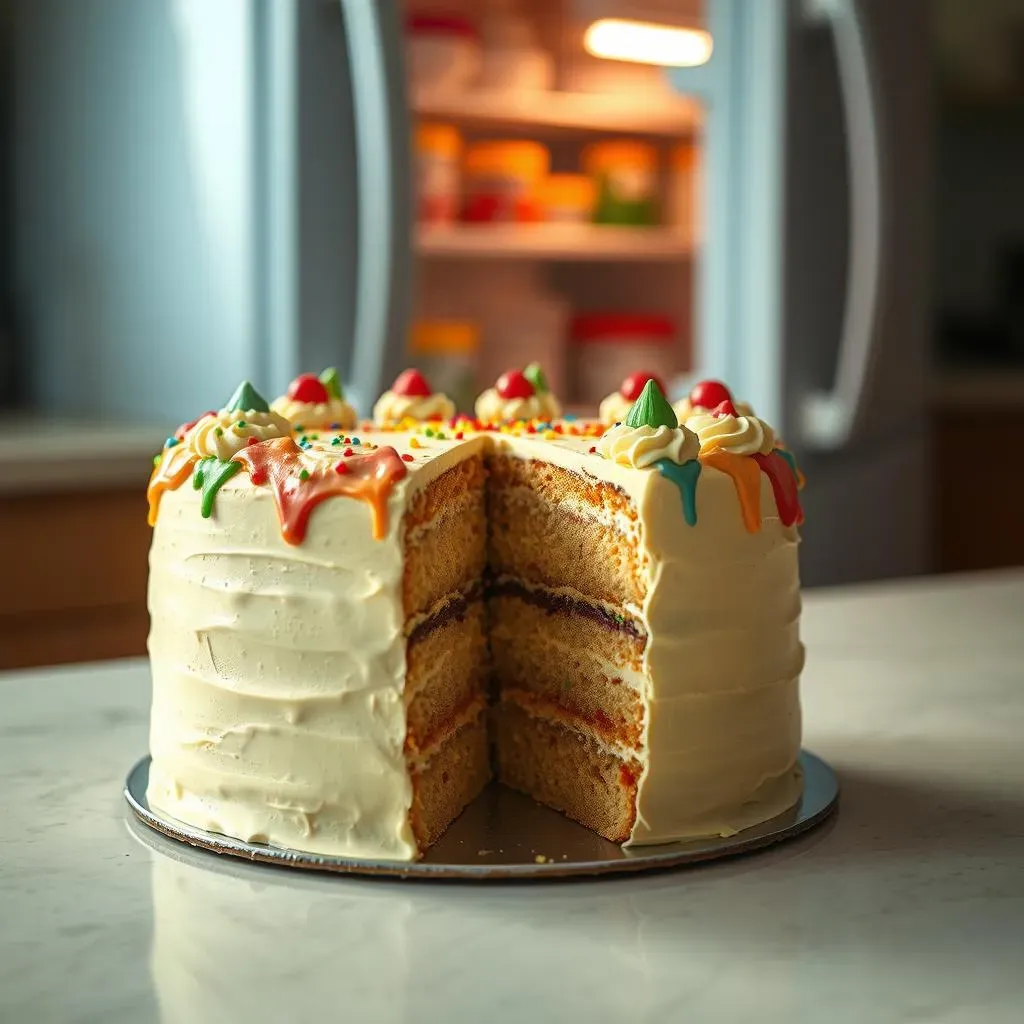Table of Contents
Ever baked a magnificent cake, only to wonder... should cakes be refrigerated? It's a question that's sparked countless kitchen debates, and the answer, as you'll soon discover, isn't always a simple yes or no. This article will unravel the mysteries surrounding cake storage, guiding you through the delicious dilemma of refrigeration versus room temperature. We'll explore the science behind cake preservation, examining how different ingredients and frosting types affect the ideal storage method. From delicate sponge cakes to richly frosted masterpieces, we'll cover a range of cake types and provide practical, actionable advice to keep your creations fresh and flavorful for as long as possible. Ready to become a cake-storage expert? Get ready to learn exactly when "should cakes be refrigerated?" is answered with a resounding yes, and when letting your cake breathe at room temperature is the better option. Let's dive in and unlock the secrets to perfectly preserved cakes!
The Great Cake Refrigeration Debate: Room Temp vs. Fridge
The Great Cake Refrigeration Debate: Room Temp vs. Fridge
So, you're diving into the world of cake storage, huh? Welcome! It's a delicious adventure, but it can get surprisingly complex. The main battleground? Room temperature versus the refrigerator. Many believe that refrigeration is always best, but that's a myth! Think of it like this: some cakes are delicate flowers, needing careful nurturing at room temperature to maintain their texture and flavor. Others? They're sturdy oak trees, able to weather a few days in the fridge without wilting. The key is understanding *why* refrigeration can be both a friend and foe to your cake. Refrigeration can speed up the staling process for some cakes, robbing them of their moistness and delicate crumb. On the other hand, certain frostings, like buttercream, can benefit from a cool environment to prevent melting. We'll explore this further, but the bottom line is that it depends entirely on the cake's ingredients and construction.
For example, a light and airy sponge cake, bursting with fresh fruit, is best enjoyed at room temperature. Refrigerating it will dry it out, making it tough and less enjoyable. However, a rich, decadent chocolate cake with a creamy frosting? That might actually benefit from a day or two in the fridge, especially in warmer climates. The frosting will stay firm, and the cake will remain moist. But don't leave it in there for too long! Even these sturdier cakes can suffer from refrigerator burn after a week.
- Consider the type of cake: Is it a delicate sponge or a dense fruitcake?
- Think about the frosting: Will buttercream melt easily at room temperature?
- Check the weather: Is it scorching hot or pleasantly cool?
Let's delve deeper into the specific ingredients that influence a cake's storage needs. Understanding the role of each component will help you make informed decisions about whether to refrigerate or not. For example, cakes with dairy-based ingredients, like cream cheese frosting, tend to benefit from refrigeration. Learn more about Costco cakes and refrigeration to understand this better.
Choosing the right storage method can make all the difference in the world. To get the most out of your cake, it's important to consider the type of cake and its ingredients. For instance, if you're making a keto cake, you'll need to take extra precautions to keep it fresh. You might even want to consider how long you can keep a keto cake out of the fridge. Check out this guide on what happens if you eat cake on keto.
Cake Type | Refrigerate? | Reasoning |
|---|---|---|
Sponge Cake | No | Dries out quickly in the fridge |
Chocolate Cake with Buttercream | Yes (short term) | Keeps frosting firm, prevents melting |
Fruitcake | No (unless it contains cream cheese) | Room temperature keeps it moist |
Cake Ingredients and Their Impact on Storage
Cake Ingredients and Their Impact on Storage
The Role of Fats and Oils
Let's talk fats! Butter, oil, and shortening aren't just there for flavor; they're crucial to a cake's texture and moisture. Butter, for example, adds richness and a tender crumb. Cakes made with a high butter content often stay moist longer at room temperature. Oils, on the other hand, create a more dense and moist cake, but they can sometimes make the cake prone to staling faster in the fridge. Shortening, a neutral-flavored fat, produces a very tender crumb, but it can also make the cake more susceptible to drying out if refrigerated. The type of fat you use significantly impacts how your cake behaves in storage. Choosing the right fat for your cake recipe is key to its longevity, and understanding how it affects the cake's moisture is crucial for storage decisions.
Think of it like this: butter is like a fluffy cloud, adding richness without too much density; oil is like a comforting hug, adding moisture and density; and shortening is the sturdy base, providing a tender structure. Each type of fat has its own personality in a cake, affecting both texture and shelf life. Learning to choose the right fat for your recipe and storage method is a key element in maximizing your cake's deliciousness.
- Butter: Rich flavor, tender crumb, good at room temperature.
- Oil: Moist crumb, more dense, can stale faster in the fridge.
- Shortening: Very tender crumb, can dry out in the fridge.
Dairy Delights and Dairy Dangers
Dairy products, such as milk, cream cheese, and buttermilk, add incredible flavor and moisture. However, they're also prone to spoiling quickly, especially in warmer temperatures. Cakes containing these ingredients often need refrigeration. A cake with a cream cheese frosting, for instance, should absolutely be refrigerated to prevent the frosting from melting and the cake from spoiling. This is why understanding the ingredients is so vital; a small addition of cream cheese can completely change how you store your cake. If you're unsure, err on the side of caution and refrigerate! Want to learn more about keto cakes and their special considerations? Check out our guide on keto cakes and diabetes.
On the other hand, if your cake is made with only flour, sugar, eggs, and butter, it might be more stable at room temperature. But even then, the weather plays a role. A humid summer day might mean even a simple butter cake needs refrigeration, otherwise, it might become a bit soggy. Always consider the overall composition and the environmental conditions when deciding whether to refrigerate your cake. To help you understand better, here's a quick table summarizing some key ingredients and their impact on refrigeration needs.
Ingredient | Refrigeration Needed? | Reasoning |
|---|---|---|
Butter | Usually no | Adds moisture and richness |
Oil | Sometimes | Can make cake more prone to staling |
Cream Cheese | Yes | Spoils quickly at room temperature |
Fresh Fruit | Yes | Prevents spoilage and maintains freshness |
How to Store Different Types of Cakes for Maximum Deliciousness
How to Store Different Types of Cakes for Maximum Deliciousness
How to Store Different Types of Cakes for Maximum Deliciousness
Now that we've covered the basics of cake ingredients and their impact on storage, let's get practical. Different cakes have different needs, and a one-size-fits-all approach just won't cut it. Think of it like choosing the right outfit for the occasion – a delicate chiffon dress wouldn't be suitable for a muddy hike, right? Similarly, a delicate sponge cake needs a different approach than a sturdy fruitcake.
For instance, delicate sponge cakes, with their airy texture, are best kept at room temperature, ideally in an airtight container to prevent them from drying out. Refrigeration can actually make them tough and stale. However, a dense fruitcake, packed with nuts and dried fruits, can often withstand a few days in the fridge, especially in warmer weather. The key is to consider the cake's structure and ingredients. Cakes with creamy fillings or frostings, like those with cream cheese or buttercream, will almost always benefit from refrigeration to prevent spoilage and maintain their texture. Want to learn more about keto-friendly options? Check out our guide on making a keto cake.
- Sponge Cakes: Room temperature, airtight container.
- Fruitcakes: Room temperature, or short-term refrigeration.
- Cakes with Cream Cheese Frosting: Refrigeration is a must!
- Pound Cakes: Room temperature, airtight container.
Let's talk about frosting! Buttercream, a classic favorite, is delicious but can melt easily in warm temperatures. Refrigerating a cake with buttercream frosting helps maintain its shape and prevent melting. However, be mindful of how long you leave it in the fridge; too much time and the cake might dry out. Other frostings, like ganache, might not need refrigeration, especially if they're kept in a cool, dry place. If your cake has a frosting that's prone to melting, refrigeration is your best friend. For more in-depth information on keto baking, check out our article on does keto cake taste good.
Remember, the environment matters too! A humid summer day will call for different storage strategies than a cool autumn evening. If you're in a hot climate, you might need to refrigerate cakes more frequently, even those that typically do well at room temperature. Pay attention to your surroundings! A little bit of common sense, combined with the right knowledge, will help you keep your cakes at their peak deliciousness. Need more tips on keto baking? Check out our comprehensive guide on how to make keto cakes.
Cake Type | Ideal Storage | Notes |
|---|---|---|
Delicate Sponge Cake | Room temperature, airtight container | Refrigeration can dry it out |
Rich Chocolate Cake with Buttercream | Short-term refrigeration | Keeps frosting firm, prevents melting |
Dense Fruitcake | Room temperature or short-term refrigeration | Can withstand refrigeration better than sponge cakes |
Pound Cake | Room temperature, airtight container | Can last several days at room temperature |
